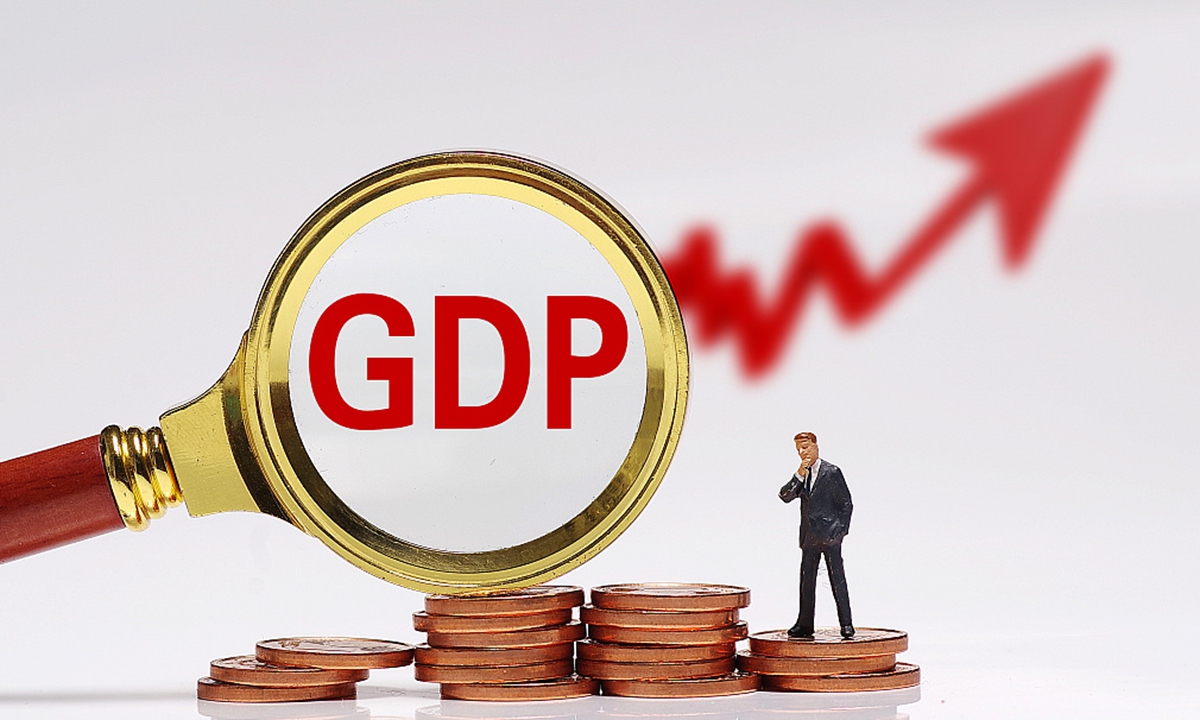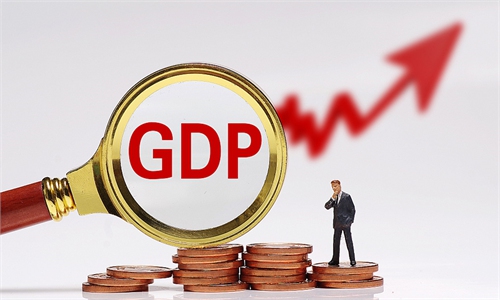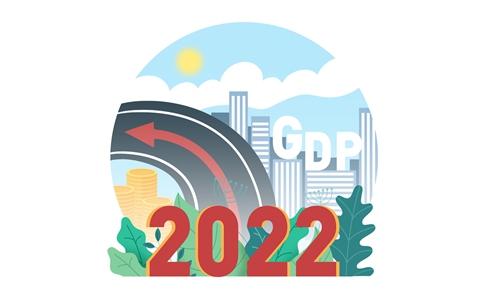
Photo:VCG
Global growth is expected to moderate from 5.9 in 2021 to 4.4 percent in 2022, which is half a percentage point lower for 2022 than announced in October, according to the World Economic Outlook issued by the International Monetary Fund (IMF) on Tuesday.
The global economy enters 2022 in a weaker position than previously expected against the backdrop of the ongoing spread of the Omicron variant and new rounds of restrictions by countries, while other factors, such as the rising energy prices and supply chain disruptions, have also led to the higher and broader inflation than previously anticipated, according to the report.
The IMF said that the lower-than-expected global economic growth is mainly because the growth forecasts of the US and China have been revised down.
The reasons for the downward revision of the forecast of US growth included a reduced likelihood of Congress passing the Build Back Better Plan involving a package of fiscal measures, an earlier exit from unconventional accommodative monetary policy, and continued supply disruptions in the economy, the report said.
The global financing conditions could also tighten sharply if the US inflation rises more than expected.
The IMF suggested that China's growth forecast was revised down due to multiple factors, including the weaker-than-expected recovery in private consumption and the ongoing retrenchment of China's real estate sector.
China's insistence on a zero-tolerance epidemic strategy is also noted in the report as the alleged potential cause that may exacerbate global supply disruptions.
However, despite the low projection for various reasons, many institutions in China predicted that the growth rate this year may still be above five percent, given the resilient and complete supply chain, supportive policies, and huge consumption capacity that are yet to be fully unleashed.
Moreover, the IMF also predicted that China's GPD growth in 2022 may grow 4.8 percent, higher than the world's 4.4 percent, as the report shows.
"We have already seen the effect of macroeconomic policies in stabilizing growth, while a series of measures on the economic front are needed, especially, to guide expectations in the future," Mei Xinyu, a research fellow at the Chinese Academy of International Trade and Economic Cooperation of China's Ministry of Commerce, told the Global Times on Tuesday.
"While dynamic clearing faces some controversial voices, it is still the best choice, allowing China to maintain more choices facing the lingering uncertainty posed by the ongoing global pandemic," Mei said.
Given the context, Mei is optimistic about China's economic growth, predicting that "our GDP growth rate this year can reach 6 percent, if everything goes well."



